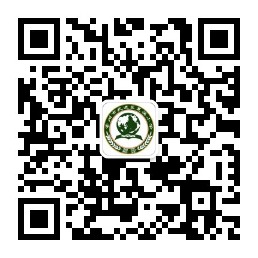一、About the Children’splan
1. Learning aims
T: Boys and girls ,what will we do today? Can you guess? Will we...?
Ppt呈现英语课堂常见活动的图片sing/read/watch a cartoon等。
SS: Will we sing/read/watch a cartoon...?板书Will we sing/read...?
T: Yes, we will. /No, we won’t.
在回答的同时板书Yes,...will. No,...won’t.
【运用猜测本堂课学习内容的方式,渗透will引导的一般将来时的一般疑问句形式,并通过教师对学生猜测的判断,引出肯定和否定回答。】
2.Ask and answer
T: Last time, we talked about the children’s plans. What are their plans?
S:Mike will go to London. Yang Ling will go to Beijing. Su Hai will go to Taipei. Liu Tao will go to Hong Kong.
T: I want to know more about their plans.
Ppt呈现思维导图
T: Look at Mike’s plan.Where will he go?
板书Where will he go?
S: He will go back to London.
T: What will he do there? 板书What will he do?
S: Perhaps he will visit his grandparents.
T: Can you think out of more questions like this?
引导学生说出更多的疑问词,包括Who/When/How/How long等,并板书这些疑问词
T: Now can you ask the questions together?全班一起提问,找学生单独起来回答各个问题
SS: Who will go back to London with Mike?
S: Mike’s parents will go back to London with him.
SS: When will he go there?
S: He will go in summer holiday.
SS: How will he go?
S: Maybe he will go by plane.
SS: How long will he stay there?
S: He will stay there for a month.
【通过人物和疑问词构成的思维导图来引出will引导的一般将来时的特殊疑问句,先由教师示范提问前两个问句,然后引导学生根据思维导图来提问,在此过程中不断增加板书的内容,逐渐呈现完整的特殊疑问句例句。】
3. Pair work
T: What about the other three children? Please choose one plan and discuss in pairs
请学生任选剩余三个孩子中的一个计划,根据思维导图同桌间用特殊疑问句互问互答。
T: Who wants to talk about Yang Ling’s plan? SS: ...
What about Liu Tao’s? SS: ...
Who can talk about Su Hai and her family’s plan? SS: ...
注意不同的人称,Yang Ling是she,Liu Tao是he,Su Hai and her family是they,并随着学生间的问答,将不同的人称在板书上补充完整。
【从学生熟悉的课文人物和计划入手,利用思维导图,让学生两人一组,操练特殊疑问句的口头表达,并顺势加上不同的人称。此步骤看似在复习课文,但更多的是以课文内容为依托,练习语法句型。】
4. Retell the story time
T: Now let’s retell the storytime together.带着全班复述课文
T: Can you fill in the blanks and say it by yourselves?
S: ...(完成课文内容填空并交流汇报)
二、About Miss Yuan’s plan
T: Just now we talked about the children’s plans.
I have a summer holiday plan, too. Do you want to know it? What do you want to know about my summer holiday plan?
让学生根据思维导图用特殊疑问词提问
S: Where will you go?
T: I’ll go to Thailand.
S: What will you do there?
T: I’ll do a lot of things. I’ll eat lots of seafood and fruit and buy many things.
S: When will you go?
T: I’ll go in July.
S: How will you go there?
T: I’ll go by plane.
S: How long will you stay there?
T: I’ll stay there for a week.
边说边把人称you补上板书
T: Look at these sentences, boys and girls. Can you find any rules?
引导学生找出will将来时特殊疑问句的结构。
【在学生能够较为顺利地用特殊疑问句来提问的基础上,呈现刚刚提问所用的语言,并帮助学生自主归纳发现这些问句的共同特点,找出一般规律,总结句子结构。尤其注意,在此过程中,要通过学生先前的大量口头问答积累,引导他们体会总结,真正做到促思维,锻炼学生的自主学习能力。】
三、About your plans
T: Do you have any plans? Can you share your plan with us? You can write a simple plan with the graph.引导学生填写自己的思维导图
T: Work in pairs, and have a discussion with your deskmate using the words on the blackboard.
引导学生用特殊同疑问词和同桌互问
T: I saw some interesting plans. Do you know where will XX go? You can ask like this-- Will he go to...?板书 Will he go...?
S: Will he go to...?
T: Yes, he will. No, he won’t.
同样方法让学生来问Will he go by ...?/ Will he stay for a month?/ Will he go this summer?
第二次选取一张女生的计划,引导学生用人称she来提问
【让学生用猜测的方式来运用一般疑问句的句型Will he ...?既符合真实的情景买也达到了教学的目标。注意两次选用不同的性别,板书上用不同的人称he/she体现。】
T: You are so clever. Look, we can ask questions with“Will he/she...?”
引导学生归纳一般疑问句的结构和肯否定回答。
四、About your friend’s plans
T: Do you know your friend’s plans?
Use the sentences we learned today to go and ask him/her. 请1-2组学生上台展示。
S: Hello, XX, where will you go for the summer holiday?
S: I will go to ...
S: Will you go by plan?
S: Yes, I will.
S: What will you do there?
S: I will eat a lot of seafood.
S: How interesting!
【在归纳总结了will引导的将来时一般疑问句和特殊疑问句的结构后,请学生自由发挥,用这两种句型和其他所学过的内容来询问了解他人的假期安排,寓情于景,真正把所学知识用起来。】
五、Homework
1. 复习语法板块
2. 完成课时作业相关练习
3. 分享假期计划
板书:
Unit 7 Summer holiday plans
由will构成的一般将来时其一般疑问句结构为:
肯定及否定回答
Will+主语人称+动词原形?
由will构成的一般将来时其特殊疑问句结构为:
特殊疑问词+will+人称主语+动词原形
本堂课以假期计划为主线,通过复习课文中孩子的计划,讨论教师、学生自己和朋友的计划,将整堂课串联起来。在教学活动中,从复习学生熟悉度课文内容入手,设计了有人物和特殊疑问词构成的思维导图,根据思维导图,在真实语境中对假期计划提出各个问题,引导学生大量地开口运用句型,并在此基础上,鼓励学生自主归纳出will引导的一般将来时的一般疑问句和特殊疑问句,真正做到促思维。在实际教学中,更多的关注了中上水平的学生,关注面不够广;在板块设计上,涉及到了书面写作的内容,感觉难度较大,还是应该更扎实些,到第四课时再考虑书面整段文章的写作练习。


 账号登录
账号登录